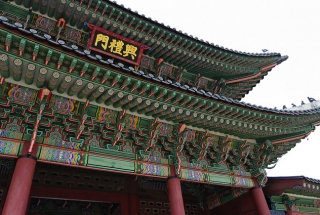Austaxpolicy blog

Australia-Korea tax and welfare workshop: South Korea at the strategic heart of Australia’s Northeast Asian economic interests
by Peter Drysdale and Adam Triggs, 14 December 2017
The geopolitical risks surrounding South Korea are now on everybody’s mind. But in the past two decades they’ve had remarkably little impact on the performance of the South Korean economy.
The intensification of tensions between the Trump administration and North Korea’s Kim Jong-un in recent months has changed that. While equity and currency markets have not been unaffected, they’ve proved relatively resilient, South Korean credit default swaps — a measure of risk — have almost doubled in 12 months.
In thinking about South Korea’s long-term prospects there are broader structural challenges to its economy that need to be considered, and scenarios under which reunification between South and North Korea might occur, although that may be many years down the track.
South Korea is the fourth largest economy in Asia. It has enjoyed unbroken growth for almost 20 years and has consistently outperformed other advanced G20 economies. In 1960, per capita income in South Korea was around five per cent that of the United States in real terms. By the time of the 2008 global financial crisis, it had increased to 55 per cent. Last year it was 62 per cent. Within these decades, South Korea joined the Organisation for Economic Cooperation and Development (OECD) and is now Australia’s fourth largest trading partner, with two-way trade at AU$29 billion (US$22.2 billion). This is a massive seven-fold increase since 1990, now boosted by their new free trade agreement.
South Korea is at the heart of Australia’s Northeast Asian economic and strategic interests. It sits slap-bang between two of Australia’s largest trading partners, China and Japan, and its high level of international trade interdependence results from its own trade ties with these two major economic powers.
In the event of military conflict between North Korea and the United States there is likely to be incalculable damage to major industrial centres in South Korea. There would be a huge loss of life in South Korea, Northern China and Japan — all of which are reliant on externally procured strategic raw materials and energy supplies from Australia.
Read the full article at Austaxpolicy blog.
Updated: 16 July 2024/Responsible Officer: Crawford Engagement/Page Contact: CAP Web Team










